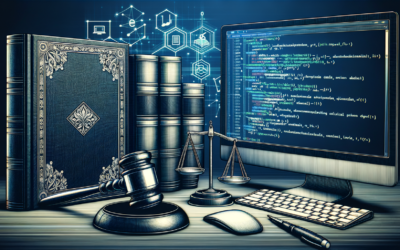Ediscovery
The advent of digital technology has transformed many fields, including justice. This is the background to the concept of Ediscovery, an essential practice at the crossroads of law and technology.
What is Ediscovery?
Ediscovery refers to the process by which electronic information is searched, located, secured and retrieved with the intention of using it as evidence in a civil or criminal case. The special feature of Ediscovery is that it applies to information stored in electronic format, also known as ESI (Electronically Stored Information).
Ediscovery fundamentals
The implementation of an Ediscovery approach is based on several key principles, such as the legal relevance of data, its authenticity, integrity and confidentiality. In addition, good data management is crucial to optimizing the Ediscovery process.
The importance of legal relevance
Electronic data must be relevant to constitute evidence. They are sorted and analyzed using advanced technological solutions, such as those described on the artificial intelligence page.
Data authenticity and integrity
The integrity and authenticity of electronic data must be guaranteed, as they can easily be altered or deleted. Preserving these elements is crucial to maintaining the legal value of electronic documents.
Privacy and security
The protection of private and sensitive data is a key concern when it comes to Ediscovery. The procedures and tools used must guarantee the confidentiality of information, a subject also covered in articles such as blockchain and smart contract.
The Ediscovery Process
The Ediscovery process is generally divided into different stages, including data identification, preservation, collection, processing, analysis, review and production. Each of these stages requires specific methods and adapted tools.
Identification and preservation
The identification of relevant ESI and its immediate preservation are critical steps. Tools comparable to those presented in premium legal software can be used to effectively locate and protect the data concerned.
Analysis and review
The analysis and review of electronic data is central, as it enables the separation of relevant from irrelevant information. These stages often benefit from advances inartificial intelligence and predictive justice.
Frequently asked questions
Here is a list of frequently asked questions for Ediscovery.
Why is Ediscovery crucial in legal matters?
Ediscovery is crucial because it enables the parties involved in a dispute to access evidence that was previously difficult or impossible to obtain. It makes evidence discovery more comprehensive and efficient, especially for files with large volumes of information.
What are the challenges associated with Ediscovery?
Challenges include managing huge volumes of data, protecting privacy, complying with different legal frameworks and implementing appropriate technologies to sort and analyze data.
Which professionals use Ediscovery?
Ediscovery is mainly used by legal professionals such as lawyers and in-house counsel, but also by regulatory authorities and corporate compliance departments.
The rise of digital technology in the legal sector is opening up new avenues for justice and the defense of rights. Ediscovery, at the crossroads of technological innovation and legal practice, is a perfect illustration of this evolution, bringing about a profound transformation in the working methods of industry professionals. As the ability to manage and exploit electronic data becomes a key competence, Ediscovery is asserting itself as an essential vector of efficiency and precision in the modern legal field.




